Why the Midlands mean so much in general election week
- Published
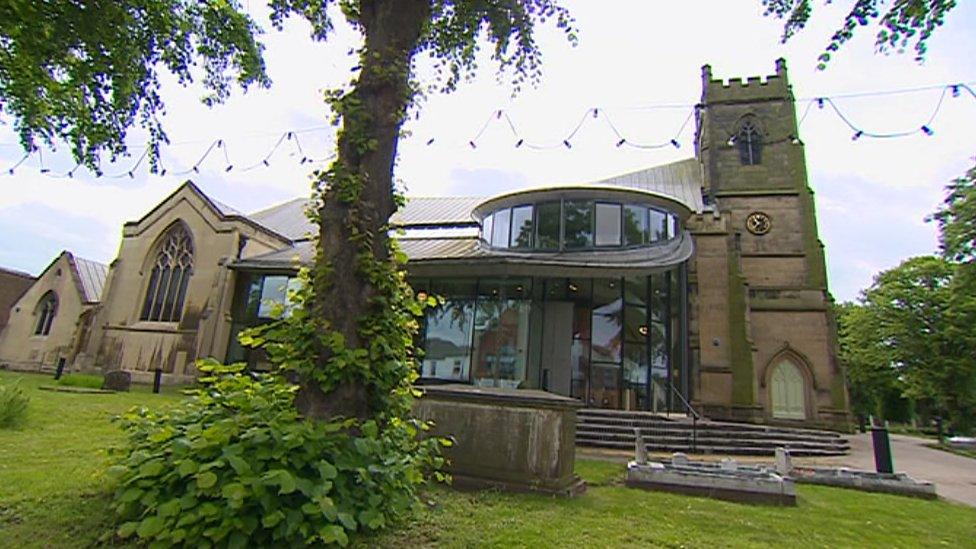
The Conservatives have been fighting hard to take the seat of Erdington, in the north of Birmingham
The tenth general election I have covered for the BBC was always going to be one of a kind.
Weeks of speculation came and went. The very idea of an early election was emphatically dismissed. In the event, it came out of the blue just when the engine room of local politics was fully-engaged with the mayoral and county council elections.
It feels as though we've spent the past seven weeks playing catch-up, planning and delivering our coverage at one and the same time. And then came the final days of the campaign, against the appalling background of horrific terrorist atrocities and the threat that they imply: the inevitable 'stop-start' routines have a added another peculiarly unsettling air of unreality to the proceedings.
But with polling day almost upon us now is the time to focus, or re-focus, on what is at stake for our part of the country in this election.
Erdington Revisited
A month ago I spent two days in this "weather-vane" North Birmingham constituency.
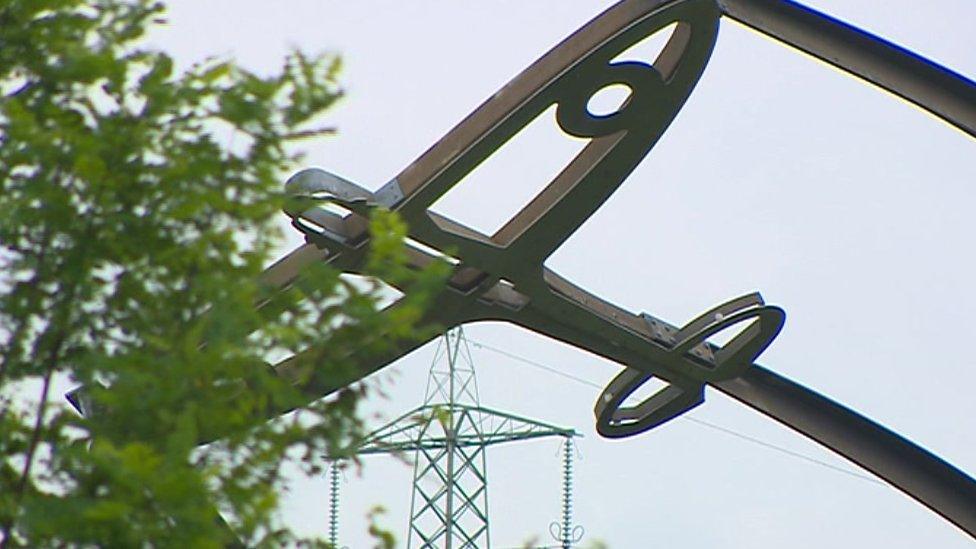
This sculpture celebrates the Jaguar factory's wartime history making Spitfire fighters. Now, it's Jaguar's access to their main European markets post-Brexit that most worries the firm's boss.
The Conservatives were fighting hard for the 7% swing they needed to capture one of the seats that would set them on course for their projected landslide. Since then of course we have seen the general narrowing in the polls, including a local seat-by-seat YouGov survey which suggests that the Conservatives will not gain any of their Birmingham targets and may miss-out on others too, including Dudley North and Walsall South.
So I decided to return to Erdington. It's where Theresa May's Downing Street Joint Chief of Staff Nick Timothy grew up. And it was he who oversaw that Conservative manifesto commitment on Social Care which is now widely considered the biggest single reason behind their apparent loss of support.
But it is also the constituency which registered the city's biggest Leave vote of 63% in the EU Referendum. Now it happens to be one of 28 Midlands seats where UKIP are not fielding candidates, which could well boost the Conservatives.
This just is one of many reasons why applying the national trends from headline poll ratings to individual seats can be so misleading; especially when so many local Labour candidates seem to be keeping references to Jeremy Corbyn and his manifesto to a minimum and fighting this campaign more like a series of by-elections.
Spitfires and Jaguars
In the North Eastern corner of the constituency stands Jaguar's sprawling Castle Bromwich plant. A gleaming silver sculpture, soaring above the roundabout outside the factory, celebrates the factory's wartime history making Spitfire fighters. Now, it's Jaguar's access to their main European markets post-Brexit that most worries the firm's German boss.
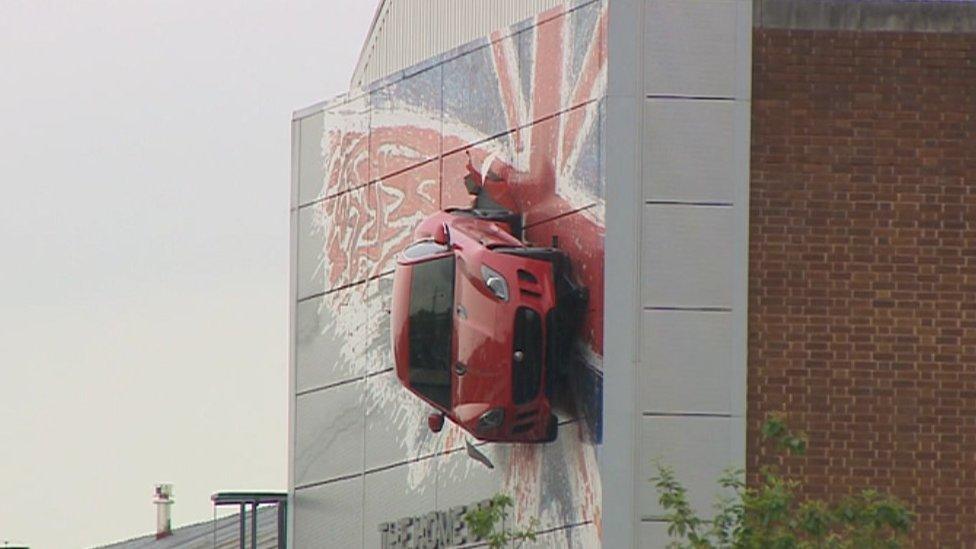
So it's here that I rendezvous with one of our most influential local business leaders, Paul Faulkner, Chief Executive of the Greater Birmingham Chambers of Commerce.
Even though the Midlands registered a larger proportion of Leave votes than any other region, our local exporting businesses are way ahead of the UK curve on EU exports. For most regions, he tells me, Europe accounts for around 40% . But here that figure is "well north of 60%".
"So what about that 'no deal' option?" I ask him.
"I think there's a very long way to go before we reach that point", he replied.
Austerity cuts both ways
But this election really is also about public services: health, the police and of course those run by local councils on which Labour say the least well-off depend most heavily. Birmingham happens to be Britain's biggest local authority, so the further £76m being taken out of its budgets for this year alone reflects its sheer scale.
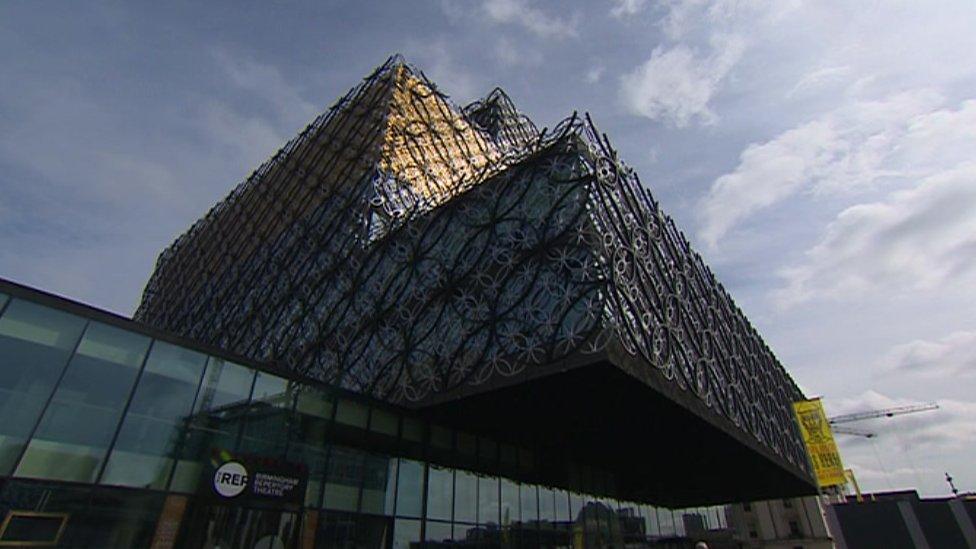
Is Birmingham City Council going to have to rely more on volunteers to make some services more efficient?
But when I meet a leading expert on public service reform, she tells me it's a debate which cuts both ways.
Professor Catherine Staite heads the Institute of Local Government at the University of Birmingham. She tells me local authorities' finances have been squeezed under successive governments. But councils run by a variety of parties have been open to accusations of responding too slowly to the challenges this presents.
With the Library of Birmingham looming behind me, she suggests more could be done, for example, to encourage volunteering so that highly-prized local assets might come closer to reaching their full potential.
Equally, though, she credits local government as the most efficient of all the public services and questions the role of central government in "micro-managing it".
Back to the future?
By now you will have realised I am concentrating on the 'twin-track' election defined by the two biggest parties: and our region has generally proved to be more of a two-party affair than most other parts of the country. All the more so this time round.
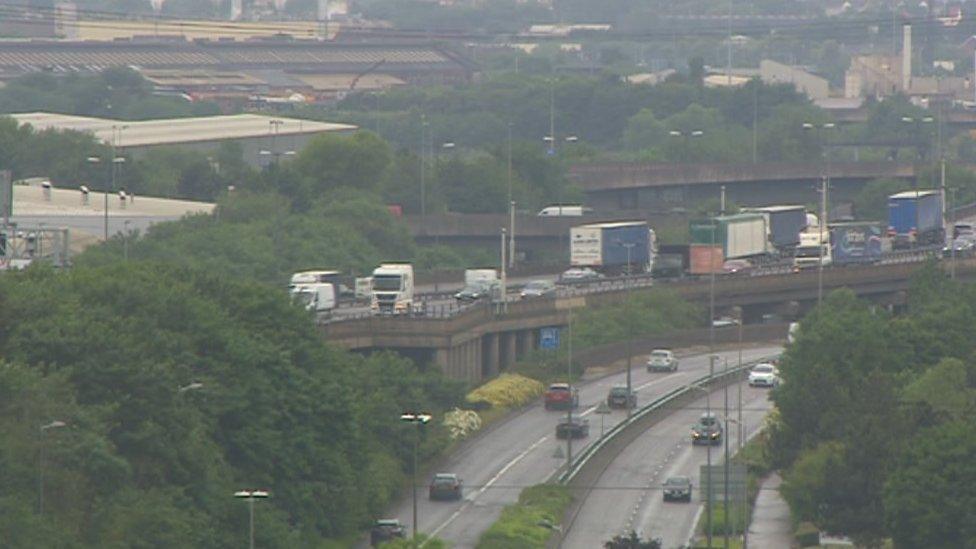
So it's Labour's anti-austerity agenda vs the Conservatives' focus on Brexit. That, after all, is why Theresa May called it in the first place. But there is a problem with snap elections called on a single issue. Take Edward Heath for example. Locked in an apparently endless battle with the miners' unions in 1974, the then Conservative Prime Minister called an election on the question "Who Governs?"
"Not you Ted", came the voters' reply. The Labour Leader Harold Wilson returned to Downing Street initially, in February, with a minority administration and then, in October, with a working majority.
The election will be about what the voters want it to be about. And remember, that old truism "the electorate is never wrong".
And it is looking more and more like a throwback to the Seventies, with two dominant parties and the smaller ones fighting the dreaded squeeze. UKIP's decline could be terminal. And that "Progressive Alliance" between the Liberal Democrats and the Greens has got precisely nowhere here.
So the parties of the Left continue to fight one another, while the Conservatives hope to consolidate the Centre and the Right. The big difference this time though is that Labour are bidding to win this election not from the Centre, but from the Left.